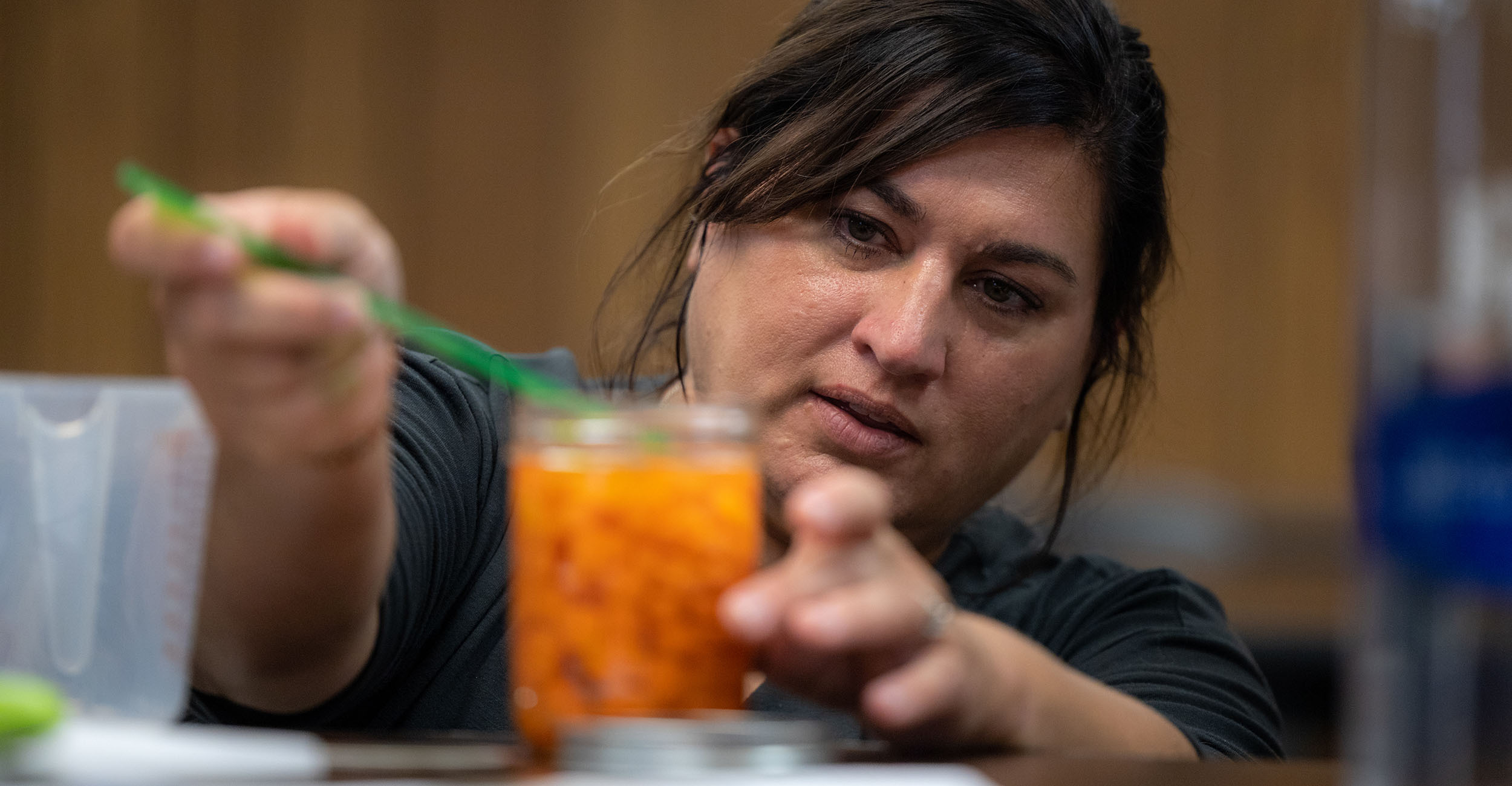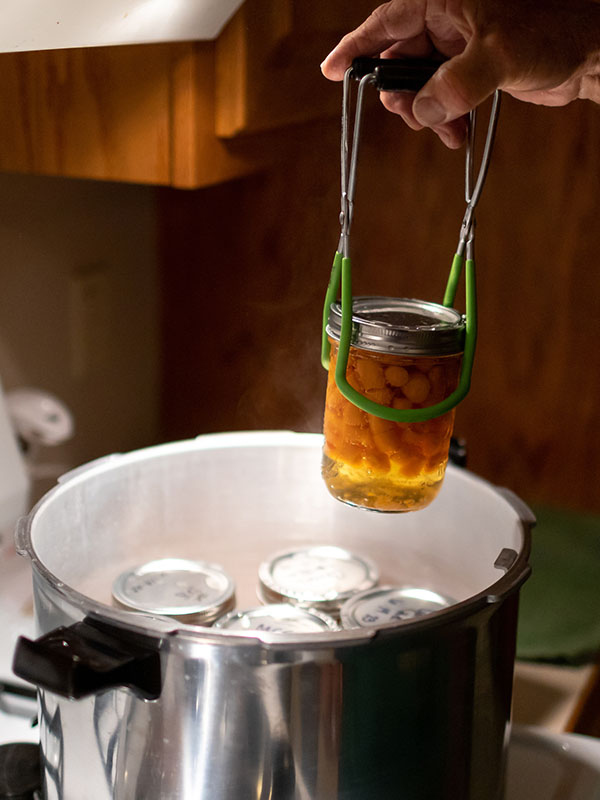
OSU Extension job takes Pawnee County educator back to her roots
Monday, August 28, 2023
Media Contact: Trisha Gedon | Sr. Communications Specialist | 405-744-3625 | trisha.gedon@okstate.edu
As a young girl, Trinity Brown remembers a pile of freshly picked green beans stacked so tall on the table that she couldn’t see her cousins sitting on the other side of it. At the time, Brown didn’t realize the food preservation skills she was learning from her grandmother would become an integral part of her professional career.
Brown is the Oklahoma State University Extension family and consumer sciences educator and county Extension director in Pawnee County, a profession she’s had for 19 years. At the tender age of 4 or 5, Brown, along with her siblings and cousins, would help their grandmother can the garden bounty.
“There were 17 of us grandkids, and we all had a job,” Brown said. “We worked hard, but we had fun. During gardening season, the boys were the harvesters and the girls helped with the canning. I was the bean snapper, and as I got older I moved up to jar packer. My older cousins helped Grandma with the actual canning process. Although it wasn’t my favorite thing to do, she made it fun by singing and dancing and saying old rhymes. It kept us busy and out of trouble.”
Brown said her grandma, Minerva Kelley, grew up in a time when nothing went to waste. She canned everything — pickles, pickled eggs, okra, corn and even beef, but she distinctly remembers that seemingly endless mountain of green beans.
“I think grandma canned for other people, too. She was a very giving person and loved helping people and her community. There always was something sweet on the table, and no one ever left her house hungry,” she said. “I remember going to her house after school and she was in her kitchen teaching someone how to make a pie crust. She was an educator but without the degree. She was a member of what is now Oklahoma Home and Community Education and would tell us what she learned at ‘club.’”
Using the knowledge she gained from her grandmother, college classes and food safety trainings through OSU Extension, Brown teaches canning workshops every year, demonstrating both the water bath and pressure canner techniques. The class makes jams and jellies, and she helps participants learn about all aspects of canning safety.
“There is a triangle when it comes to canning. People must consider the delicate balance between acidity, temperature and time,” Brown said. “They have to know the acidity of the type of food they are canning, making sure the internal temperature gets to the correct degree to destroy bacteria, as well as how long to process in the canner. These factors are vital for canning safety prevention of foodborne illnesses.”
Pawnee resident Misty Stossel said a friend introduced her to canning four years ago
after her son planted a garden.
“I thought, ‘What am I going to do with all of this?’” Stossel said. “My friend helped me get started, and we’ve continued to can together since then.”
She learned about Brown’s canning workshop on Facebook and decided to attend to learn more about the science behind canning.
“I did some canning with my grandmother when I was young, but I hadn’t had any formal training,” Stossel said. “I wanted to learn the reason why certain steps needed to be taken, why weight pressures mattered and how the acidic level in foods mattered. I learned a lot in the workshop, and I would recommend anyone wanting to learn more about canning and preserving food to look for a class offered through their OSU Extension office.”
Stossel puts up about 100 jars of food each year, including traditional fruits and vegetables. Pickles and pickled okra are a couple of her favorite foods to can, but she also preserves beef stroganoff, stew, taco soup and ham and beans.
“These make mealtime really easy,” she said. “Not only is canning fun, but the most important part to me is I know exactly what’s in my jars, and I know what my family is eating.”
Brown said she encourages people to use research-based recipes when canning because they’ve been tested to ensure safety. She said her go-to source is the USDA Complete Guide to Home Canning. In addition to OSU Extension’s food preservation information, she also recommends the National Center for Home Food Preservation website.
Not only does Brown provide canning enthusiasts with important information, but she also can test pressure canners to ensure their safety. Educators at OSU Extension offices assist with the safety audit, which includes checking the gauge, vent pipe and gaskets.
“I have a checklist I go through. It’s a good idea to have pressure canners checked every two years,” she said.
Staring at that pile of green beans for canning all those years ago, Brown had no idea the experience would lead her to a career she loved.
“I didn’t realize the things my grandmother taught me when I was a kid would help me in my career, but it did,” Brown said. “That background has made me comfortable in the areas of family and consumer sciences and in my ability to teach others. Everything comes full circle. Going to work for OSU Extension was like coming back to my roots.”
For more information about canning techniques and safety, contact Brown at the Pawnee County OSU Extension office at 918-762-2735 or trinity.brown@okstate.edu.
OSU Extension has a new food safety assistant state specialist on the Stillwater campus. Contact Christi Evans at christi.evans@okstate.edu for canning/food preservation and other food safety questions.
